Sleeping in a Van: How to Get a Great Nights Rest

Sleep is an important part of life. We spend a third of our lives doing this one activity. Quality sleep is important to so many aspects of our lives like learning, fitness, and mental health. Sleeping in a vehicle doesn't mean we need to sacrifice quality sleep. So, how do we get a great sleep in a van?
Sleeping is an important aspect of living in a van. Knowing where to go, what makes a good site, avoiding attention, safety, comfort, and routine are important aspects of ensuring quality sleep in your van. Ensuring your sleep is taken care of can set up your day for whatever adventures lie ahead.
Table of Contents:
Know Where to Go
Finding The Best Spot
Stealth Camping
Safety First
Make it Comfortable
Have a Routine
Conclusion
Know Where to Go
Knowing where to go is the first step in sleeping well in your van. Having no plan can leave you searching until late in the night for the right spot. Doing a bit of research into some places you'd like to stay can help with ensuring you have a nice place to stay.
Whether you want to stay in a parking lot, or in nature will decide a lot about what you do. They can also change the way you sleep. Sleeping in the city can be a bit louder, but you have the knowledge there is access to help if required. Leaving the city for nature can negate the city sounds, but you're more isolated if something happens.
Using applications like iOverlander is a great way to find places to sleep. You can read about many aspects of potential spots like legality, quality, access, cell service, etc. It is also possible to contribute to this free resource through reviews and additions. Apps like these sometimes list wild camping spots, stealth camping spots, and parking lot locations too.
I've been lucky to experience absolute isolation for days at a time while in the backcountry. I've also had fantastic experiences at popular BLM areas where all the other guests were highly respectful. On the contrary, I've also set up in the woods near some people running chainsaws all night and have been in parking lots where alarms go off at all hours of the night. The great thing about this lifestyle is that if you don't like a location, you can leave.
Take a look at this blog post that dives deeper into the topic!
Finding The Best Spot
A quiet spot is ideal if you're looking for peace and tranquillity. Sometimes a parking lot is just what you need if you have commitments in town the next day, or are an avid gym goer, or sightseer. Other times, you might want to spend time outdoors and bring along all you'll need to spend a week away.
An important aspect of your site choice is the grading of the ground you'll be staying on. It's not fun waking up to sliding off of your bed or having to use your legs to keep you from sliding down to the bottom of the mattress. It can make you wake up without feeling rested, or even to a headache. Ensuring your home is level will help with sleep. It also helps with the rest of your life like cooking or relaxing. While getting levelled on pavement is easy, doing so in nature can be more challenging.
I've become a bit meticulous about this since experiencing the hardship myself. I sometimes use the sliding door to gauge how level I am. If it's too hard to open, or flies open with no effort, I know I'll need to make some adjustments. Think about using RV levelling blocks, and a level to ensure you're set up well for your stay. You can also use rocks or logs. Another option is eyeing it as I mentioned above and getting to a point that feels right.
Another aspect of this point is being able to leave in the morning. I've been stuck before due to being at the bottom of a small hill after torrential rain through the night. It wasn't a lot of fun, but I did learn that knowing I could make it out in the morning is important. The same can go for snow/ ice storms. It helps to arrive at your site early enough so you can ensure there are no obstacles to leaving.
This blog post digs deeper into knowing where to go!
Stealth camping
Disclaimer: I do not condone doing anything illegal.
Sometimes we want or need to stay in a place that might not welcome our lifestyle. When this happens, we often refer to it as stealth camping. Despite our best efforts, it's not always possible to remain stealthy. Remaining respectful to those in the know can help ensure you sleep through the night without getting "the knock".
"The knock" is when someone comes to your vehicle to tell you you can't be there. This could be parking lot security, police, a concerned citizen, or even a landowner. The repercussions could be as heavy as a fine, or as small as a warning. Avoiding "the knock" is the most important thing as it can be a major pain to have to pay a fine, or move in the middle of the night and scramble to find a new location.
Stealth camping provides a plethora of additional spots to park if you do it right. It can allow us to stay somewhere close to where we need to be, or a more convenient location than something like 30 minutes away from the trailhead. Despite the convenience of stealth camping, there exist some challenges to sleeping this way.
Some people will know just by the vehicle if someone is sleeping in it or not. Sometimes they will be fine with it, or they could detest it and make a call to get you removed. Choosing your location for stealth camping is important. Places like residential streets might not be the best as people sometimes notice that your vehicle doesn't belong there. Industrial areas in a city are often filled with cargo vans and have cars parked all around for night workers.
Respecting the action of being stealthy can go a long way. Ensuring that you roll into your spot later in the day can help. Once parked, get right into bed. This might mean you do your nighttime routine elsewhere than your parking spot. No cooking, no loud movies that could be heard from the outside, no music, and even having your heater or fan on before rolling into your location can help with stealth.
I used to get so worked up when I would sleep somewhere where the legality was a gray area. Luckily, I've never been disturbed, but I'm becoming more aware that it's likely that I will at some point. I remain respectful of the areas I'm in to lessen the impact if someone wants me removed. I also prefer to sleep where I'm sure I won't be disturbed as it's a much more enjoyable experience knowing I won't have to explain to some security guard what I was doing.
Safety First
Safety should be one of your first priorities. Sleeping in an unsafe environment can leave you awake all night wondering if that sound was someone trying to break into your vehicle. Taking the proper precautions can increase your safety while sleeping in your van.
You don't want to be a target. Much like rules surrounding normal car parking, parking under a light, in view of security cameras, and making it known that someone is inside the vehicle can go a long way. Don't leave things like camera gear in the front. Don't give anyone an excuse to target you.
Alternatively, bad things can't always be avoided. Some prep can go a long way, like keeping your self-defence cast iron pan handy, and the keys close by so you can flee if required.
Along with safety is the aspect of having a good exit plan. Not only for the chance you need to leave your site in the middle of the night, but also for ease of egress when it's time to leave. Perhaps people show up at night and are partying, or perhaps there are some animals roaming around that make you want to leave, or perhaps you notice someone trying your door handles. Being able to evacuate your location quickly is an important safety step.
Make it Comfortable
Ensuring your vehicle is set up as a comfortable environment is quite important. It's your home for the night, if not a more permanent one. Why shouldn't it be as comfortable as at home? Van life is hard enough as it is, there's no point in making your sleep difficult too.
A quality mattress goes a long way. Ensure it isn't too thin but isn't too thick that it disturbs the headroom. Having comfortable blankets is a great idea, the same goes for pillows. If your setup is permanent enough, it might be worth sleeping with real bedding as opposed to mummy bags and camp pillows.
Another important aspect of setting up your home is temperature regulation. Studies show that sleeping in a cooler environment helps with quality sleep. A fan, whether battery-operated or properly installed in the roof helps with pulling in fresh air or exhausting out warm stagnant air. Crack a window open to allow for a cross breeze. Ventilation also helps with the dreaded condensation issues that most people face in a van.
Blacking out your vehicle can go a long way too. If you put enough effort into light control, you might even be able to sleep during the day or under a street lamp and not be disturbed. This is also beneficial in a stealth circumstance where you might not want people seeing the light from your vehicle.
I've spent a long time dealing with sleep issues. Proper sleep hygiene can go a long way. Finding out what helps me sleep well turned out to be so important to my sleeping habits. At times, I've come to be more comfortable in my van than at home.
Have a routine
Much like at home, having a solid bedtime routine can be beneficial to sleeping well in a van. It might be challenging when you drive late into the evenings. Your location might be new and exciting. There may or may not be the same amenities to help with your routine. Sticking to a routine can help ensure you are able to get a great night's rest.
There is an excellent rule of thumb about not travelling after 3 pm or 300 miles in a day. Following this rule of thumb keeps you out of heavy evening traffic, helps save money on large travel days, and gives you time to enjoy your location and something other than driving all day. Instead of driving into the evening, you can have time to get all the things you want to be done before it's time for bed. I've noticed a greater sense of enjoyment in my travels when I follow this rule. It allows me to travel more slowly and be more present instead of worrying about rushing to the next spot.
Having a bedtime routine is important as it helps queue your body for sleep. It also assists in keeping your van organized and optimized. Your routine could even start immediately after dinner, where you wash dishes, and yourself since you have some hot water going, and then sit down to read in front of a fire before getting into the sheets.
Some other tips are more universal to sleeping no matter where you are. Avoiding screens before bed, avoiding stimulation like physical activity late in the day, waking up and going to sleep at the same time, and regulating caffeine consumption can help make a big difference.
Conclusion
Sleeping in your vehicle doesn't need to be hard. You have the ability to sleep in beautiful and safe places. With some planning, it's possible to make your environment even more comfortable than any other setup for sleep. Planning goes a long way in ensuring quality sleep in your vehicle.

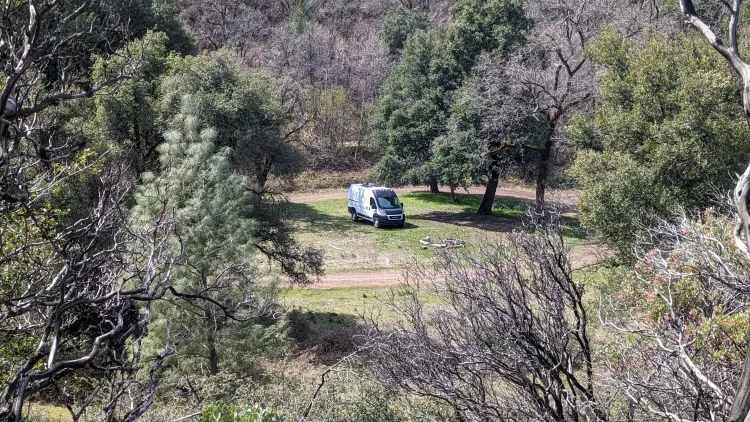
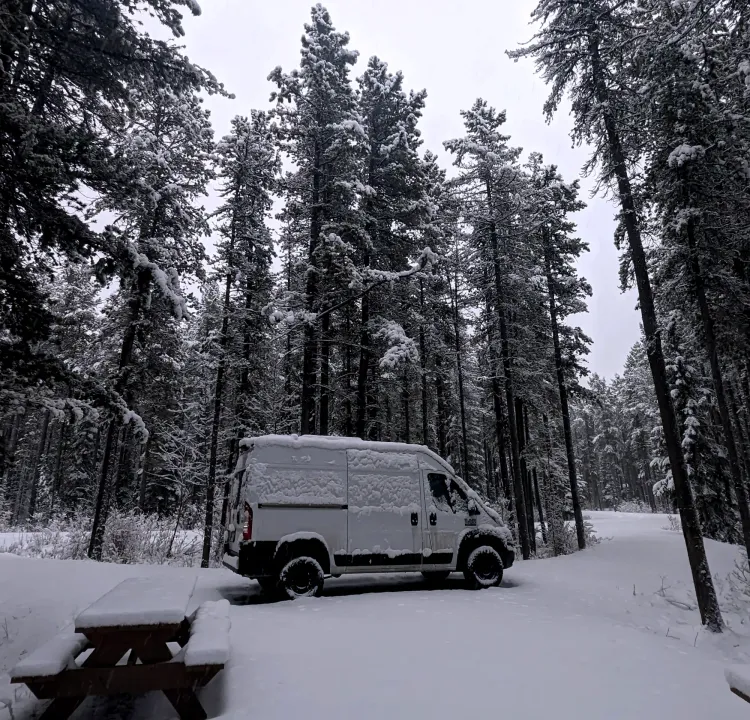
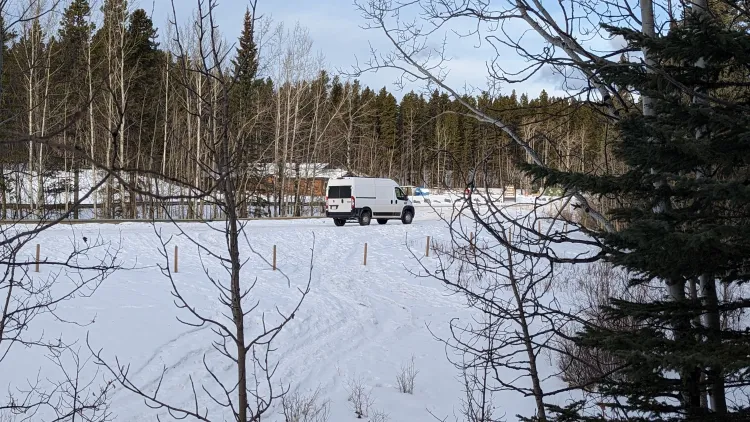
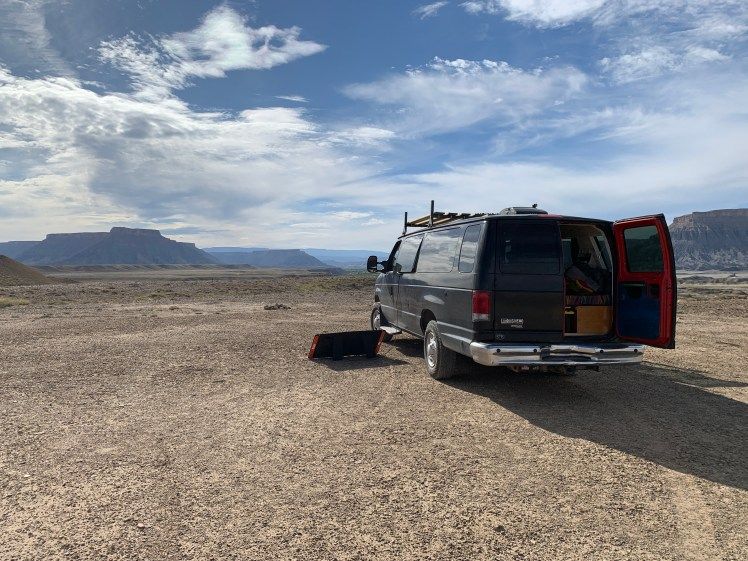
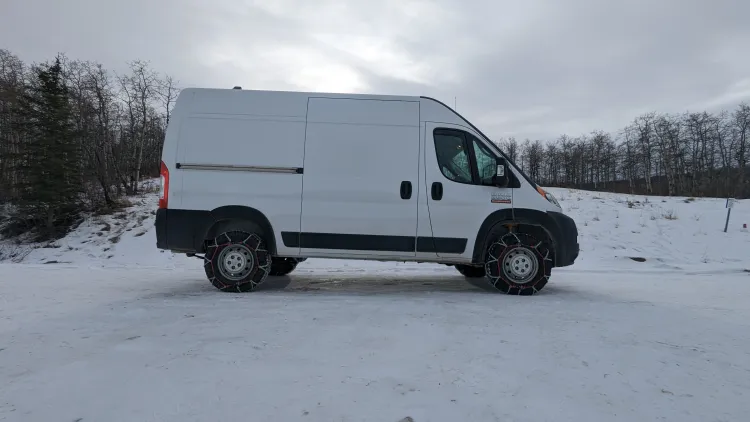
Member discussion